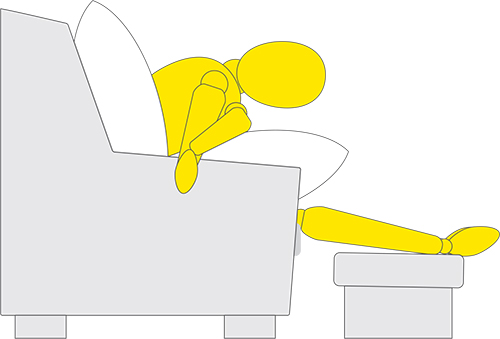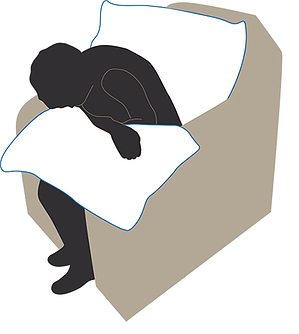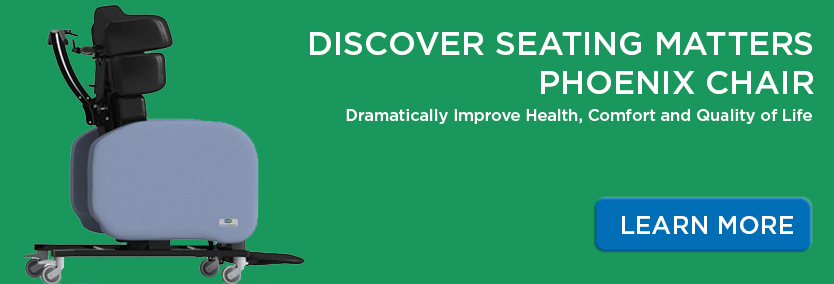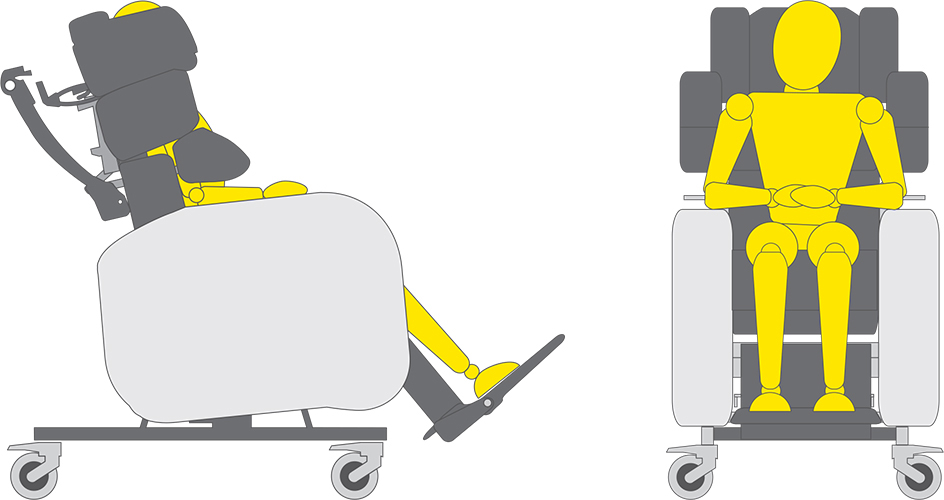Marjorie lived in a care home setting and had dementia. She used a patient lift (hoist) for all transfers and staff noted that she had a very low level of communication.
Marjorie had poor sitting balance due to a marked kyphosis in her spine. She sat in a chair with no adjustments or additional supports added except for a tray

The first thing noted about Marjorie was that her kyphotic posture limited her vision, interaction and her functional ability. She found it difficult to hold her head in an upright position and could not maintain her posture for more than a few minutes.
She would often have a pillow across her tray and lay her head on it. In terms of independence for eating and drinking, speaking to others or calling out for assistance, her sitting posture did not permit these things to happen.
Caregivers and her family would hold Marjorie’s head up with one hand to her forehead and feed her with their other hand.
Upon assessment it was suggested that a tilt in space function would be very beneficial to Marjorie and so she trialed the Seating Matters Phoenix™ chair.
With the lateral, head and shoulder supports on the Phoenix™, she was able to have her head and spine supported and then tilted back.
Tilt in space immediately allowed gravity to work to her benefit and she could hold her head in a neutral position over her spine.
Marjorie was then able to sit in her chair and interact and communicate with the others in the room.
This had obvious psychological benefits as she was stimulated by the activity in the room. Her sitting posture was also improved facilitating a better feeding position.
Support Posture and Improve Function with the Phoenix. Click Here to Learn More.

** This post was originally published on http://blog.seatingmatters.com/marjories-story


